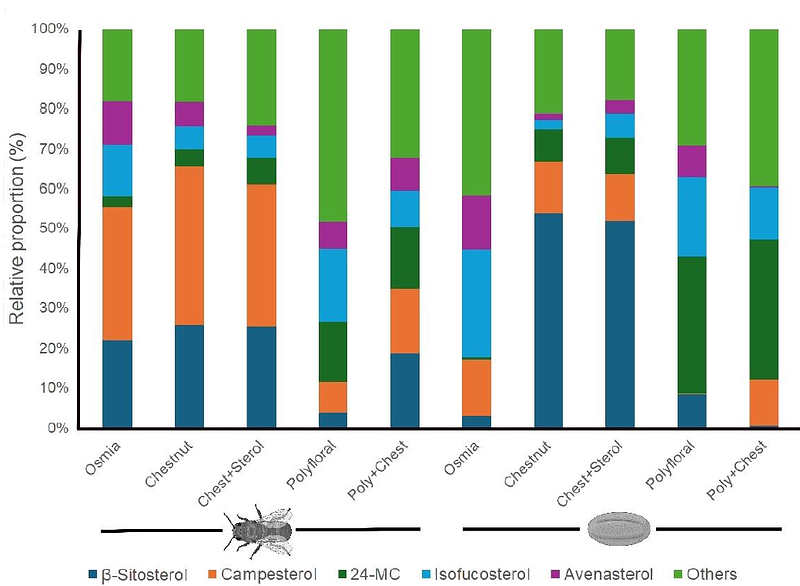Pollen Diet and Sterol Provisioning Differentially Affected Larval Development in a Generalist Solitary Bee

Pollen Diet and Sterol Provisioning Differentially Affected Larval Development in a Generalist Solitary Bee
Martel, C.; Kreidt, J.; Furse, S.; Jennifer Scott, J.; Griffiths-Lee, J.; Wright, G. A.; Stevenson, P. C.
AbstractPollen sterols are essential micronutrients for bees as membrane components, hormone precursors and gene regulation. Sterols vary among plant species; therefore, bee development may be influenced by or adapted to specific pollen diets. To better understand the roles of pollen diet and sterol provisioning, we investigated the effect of different pollen types with sterol supplementation (i.e., pollen provided by the bee mother, Castanea sativa pollen, C. sativa pollen supplemented with sterols, polyfloral pollen, and a combination of polyfloral and C. sativa pollen) on the development, and sterolome of the generalist, solitary bee Osmia bicornis. Pollen diet significantly affected bee development (i.e., final weight, feeding period, growth rate) and larvae fed on pollen supplemented with sterols had an increased growth rate compared to those from the other treatments. Despite sterolomes being distinctive among pollen diets, sterolomes were more similar within some bees than between bees and their pollen diets. Moreover, larvae fed on polyfloral pollen had much higher relative concentrations of campesterol (~10%) than the pollen itself (~0.2%), indicating Osmia bees are highly efficient in nutrient accumulation or can metabolically produce campesterol. Our results contrast with previous work which suggests bees cannot modify sterols and highlight the complexity of bee nutrition.